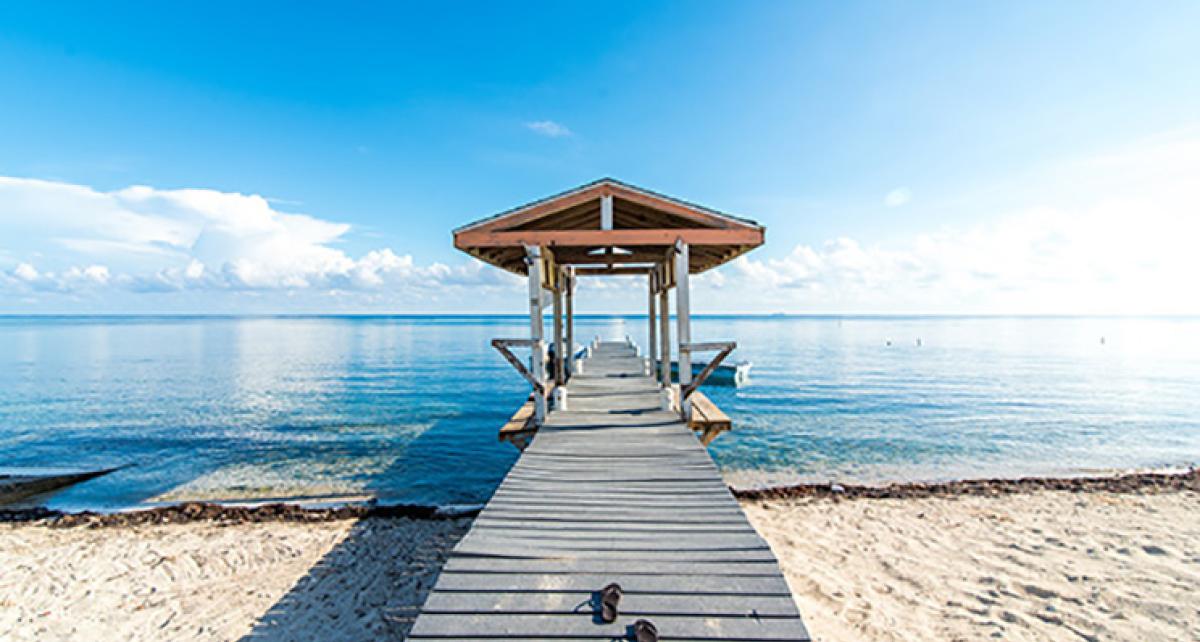
Cayman Islands Immigration Chapter (Mondaq)
This guide to Cayman Islands immigration includes commentary on the legal framework, business travel, work permits, settlement, dependents, intra-company transfers, new hires, sponsorship, trends and predictions and tips and traps.
Contents
- Legal framework
- Business travel
- Work permits
- Settlement
- Dependants
- Intra-company transfers
- New hires
- Sponsorship
- Trends and predictions
- Tips and traps
Legal framework
Which legislative and regulatory provisions govern corporate immigration in your jurisdiction?
The primary immigration legislation in force in the Cayman Islands (the "Islands") is the Immigration (Transition) Act (2021 Revision) (the "Act") together with the Immigration Regulations (as revised) (the "Regulations").
Do any special regimes apply in specific sectors?
There are various exemptions for certain industries and sectors, including extended work permits for approved categories of business including fund administration and investment management services.
In addition and until recently the Global Citizen Certificate ("GCC") program, introduced in October 2020 as a result of the COVID-19 pandemic, was implemented to attract digital nomads and other professionals from around the world who have the ability to work remotely. The main requirements are proof of sufficient income (minimum of US$100,000 if an individual, US$150,000 if applying with a spouse) and health insurance along with various standard documents such as a police clearance and bank references. Once granted, a GCC the holder has the right to enter and work from the Cayman Islands for up to two years with the only restriction being that the individual must be physically present in the Cayman Islands for a total of ninety days in each of the two years. The program expired on 31 October 2021 however, it may be extended given how successful it has been.
Another impactful initiative is the Special Economic Zone (the "SEZ") which was implemented in September 2011 and is operated by Cayman Enterprise City (the "CEC"). The goal of the SEZ is to stimulate and attract economic growth and international investment in the science, technology, commodities and derivatives, maritime, media and educational sectors in the Cayman Islands. Enterprises that qualify and choose operate within the SEZ are afforded various benefits including a streamlined incorporation process, guaranteed protection of intellectual property, exemptions from direct or indirect taxes, certain import duties and importantly, work permit requirements. The exemptions from work permit requirements include the need to test the local labour market and otherwise comply with the traditional work permit application process. The employees of SEZ companies are granted five year work permits and the process has been streamlined such that the entire process usually take 4 to 7 weeks.
Which government entities regulate immigration in your jurisdiction? What powers do they have?
Section 3 of the Act states that the government department Workforce, Opportunities and Residence Cayman Office ("WORC") carries out the following functions:
- providing labour market demand assessments;
- training and developing Caymanians for the work force;
- providing job match and placement services for Caymanians;
- processing applications for work permits and applications and grants for Caymanian status, permanent residence and other types of residence;
- any other functions as imposed by the Act.
According to section 4 of the Act WORC has the power to do anything which is legally required to discharge its functions and duties under the Act.
What is the government’s general approach to immigration in your jurisdiction?
The Cayman Island's Government ("CIG") is open to all forms of legal immigration. As evidenced by the GCC program described above the CIG is willing to implement policies to attract hard working and successful individuals. Not only does CIG implement straightforward immigration policies to ease the expatriate permit application process but they also process such applications relatively quickly. CIG will approve temporary work permits in ten to fourteen days and permanent work permits in six to eight weeks.
Business travel
Do business visitors need a visa to visit your jurisdiction? What restrictions and exemptions apply in this regard?
The Regulations provide for a wide range of categories of employment for which a person can temporarily enter into the Cayman Islands without a work permit. Half of these cover traditional business visits such as meetings, training, conferences, speaking events, repair and maintenance works, insurance valuations (among many others) however these activities come with the caveat that the business visitor cannot stay for more than ten days. The other half apply exclusively to artistic endeavours such as filming, playwriting and recording and include all of the support roles that are customary in those lines of work. For people coming to engage in and or assist with artistic endeavours the Regulations provide that the employment period can be for up to six months in a twelve month period. For both the traditional business visitors and those pursuing artistic endeavours, they cannot engage in any other activity that would require a work permit (ie. an activity not in the two lists of exemptions as described above).
A business in the Cayman Islands which regularly employs individuals who are not resident in the Islands may make a single application per year for one or more business visitors permits.
Do the requirements vary depending on sector or purpose?
Yes, see answer to 2.1 above - Do business visitors need a visa to visit your jurisdiction? What restrictions and exemptions apply in this regard?
What is the maximum stay allowed for business visitors?
The maximum stay is either ten days or up to a total of six months in a twelve month period (depending on the kind of work being undertaken).
What activities are business visitors allowed to conduct while visiting your jurisdiction?
In total there are approximately fifty activities that are specified in the Regulations however these lists are not exhaustive and an immigration officer has a discretion as to what other activities may be included as exempt from requiring a work permit.
Is authorisation required for business visitors to provide or receive short-term training?
The Regulations outline that a person may come to the Islands without obtaining a work permit (for a period of not more than ten days) to receive training provided that it is confined to observation and classroom instruction only and that the person is employed by company or organisation carrying on business outside the Cayman Islands. Providing training is not included in the list of exemptions however, a specific exemption could be sought.
Work permits
What are the main types of work permit in your jurisdiction? What restrictions and exemptions apply in this regard?
The main types of work permits that exist in the Cayman Islands are (i) temporary, (ii) temporary: seasonal worker, (iii) temporary: entertainer and (iv) an annual work permit. As outlined in section 2 above, an exemption from needing a work permit can apply if you fall into the business visitor category or if you are an exempted person. For example, as a result of COVID-19 the CIG passed the Immigration (Transition)(Work Permit Exemptions) Regulations, 2020 which made certain medical personnel (recruited from overseas) exempt from needing work permits for the entirety of their contracts.
What is the maximum stay allowed under each type of work permit? Can this be extended?
The maximum stay allowed under a temporary work permit is a continuous period of six months and the maximum stay allowed under a temporary seasonal worker permit is a continuous period of eight months.
The maximum stay that is allowed under a permanent work permit (without having applied for any other kind of status) is nine years from either of: (i) the date on which the worker entered the Islands if they entered as a work permit holder OR (ii) the date on which the worker is granted a work permit if they entered as a tourist visitor. The nine year term applies whether the intervening work permits that make up a worker's nine year stay (e.g. nine one year permits) are granted and held continuously or not. To reset this nine year timeline an individual must leave the island for not less than one year.
What criteria must be satisfied to obtain each kind of permit?
The information that is required as part of a work permit application is:
- Evidence of good character of applicants and any dependants;
- Proof of identity for applicant and dependants;
- Medical examination or a medical certificate for applicant and any dependants;
- Any additional particulars the Work Permit Board may require as part of the application and in particular, details surrounding the qualifications and availability of suitable accommodation for the applicant and any dependants.
Do any language requirements apply for each kind of permit?
There are no express language requirements however Section 59(3)(e) of the Act states that in considering a work permit application, the Work Permit Board (the "Board") may take into consideration the "worker's facility in the use of the English language". While this concept is not expanded upon further in the Act or the Regulations, in practice, the Board generally considers an applicant's English proficiency in relation to the kind of work they will be undertaking and assesses their ability to perform such work in light of their English speaking proficiency.
Are any work permits subject to quotas?
CIG has the power to introduce quotas but only in respect of restricted areas of employment which may be designated by CIG.
Do any specific rules apply with regard to the following:
- Work in specific sectors?
There are exemptions from work permits as outlined in 2.1 above - Do business visitors need a visa to visit your jurisdiction? What restrictions and exemptions apply in this regard?
- Shortage occupations?
None
- Highly skilled workers?
Term limits are not applicable to highly skilled workers whose primary place of residence is outside the Islands as set out in section 66(15) of the Act. Practically this applies to individuals who are brought into the Islands to perform a certain task and when complete they return to their place of residence. This process can be repeated on a task-by-task basis with no term limit.
- Investors and high-net worth individuals?
Not in respect of work permits however there are rules (as outlined in section 4 below) applicable to these kinds of people seeking permanent residence.
What are the formal and documentary requirements for obtaining each kind of permit?
See 3.3
What fees are payable to obtain each kind of permit?
All temporary permit applications cost KYD$70 and KYD$250 per dependant. The Grant fees payable upon obtaining the temporary work permit are 66% of the fee payable were the permit an annual work permit.
A permanent work permit application costs KYD$ 100 and KYD$250 per dependant (if the annual permit fee is over KYD$2100 then the dependant application fee rises to KYD$500). Grant fees for an approved permanent work permit vary greatly depending on the kind of work and range from KYD$0 to more than KYD$30,000.
What is the process for obtaining a permit? How long does this typically take?
The process consists of submitting an application to the Board in the prescribed form with respect to the type of permit and work that an applicant is seeking. Temporary permits are typically processed within two weeks of submission and permanent work permits can take anywhere from one to six months.
Once a work permit has been obtained, what are the rights and obligations of the permit holder? What are the penalties in case of breach?
The penalties for working without a work permit or working in a position for which you do not have a work permit are, in the first instance, a fine of KYD$5,000 and up to one year imprisonment.
Settlement
What are the criteria for obtaining settlement in your jurisdiction? What restrictions apply in this regard?
There are a number of paths to obtaining settlement in the Cayman Islands under section 37 of the Act:
- Persons who have been legally and ordinarily resident in the Islands for eight years may apply to WORC for that person, their spouse or civil partner and any depends they may have to live permanently in the Islands;
- Residency Certificate for Persons of Independent – this certificate can be granted to a person who has satisfied the Chief Immigration Officer that he or she has (i) a continuous source of annual income of no less than KYD$120,000 (ii) an account with a CIMA regulated local institution and maintains a minimum deposit of KYD$400,000 or (iii) invested KYD$1,000,000 of which at least half must be in developed real estate in Grand Cayman;
- Residency Certificate for Retirees (no details are provided in the Act);
- Certificate of Direct Investment – this certificate is available to persons who have satisfied the Chief Immigration Officer that he or she proposes to invest or has invested a sum of at least KYD$1,000,000 in an employment generating business in the Islands;
- Being the dependant of a Residency Holders Certificate;
- Certificate of Permanent Residence for Persons of Independent Means - this certificate can be granted to a person who has invested at least KYD$2,000,000 in developed real estate in the Islands;
- Certificate for Specialist Caregivers – this certificate can be granted to a person, upon the application of their employer or former employer, who (among other things) holds a final work permit (meaning they can no longer apply for a renewal), was employed by the applicant for at least three years immediately before the expiry of their final work permit and they were employed as a domestic helper, nurse, nanny or in some other caregiving capacity;
- Residency Certificate (Substantial Business Presence) – this certificate can be granted to a person who proposes to be legally and ordinarily resident in the Islands for a minimum period of ninety days in each calendar year and (i) who owns or proposes to own at least 10% of the shares in an approved category of business or (ii) proves to the Director of WORC that that person is or will be employed in a senior management capacity of an approved business.
Do any specific rules apply to foreign citizens with ancestral connections?
Foreign citizens who at the time of their birth outside the Islands, had a parent who (at that same time) was resident in the Cayman Islands have a right to Caymanian status.
Foreign citizens who were born outside the Islands and at the time of their birth (on or after 1 Jan 2004), had a parent who was Caymanian otherwise than by decent have a right to be Caymanian.
Foreign citizens who have an ancestral connection (e.g. grandmother or grandfather is/was a Caymanian) can apply directly for Caymanian status when they attain the age of 18 and are not otherwise entitled to be Caymanian (e.g. father/ mother is Caymanian, or by way of birth/residency).
What are the formal and documentary requirements for obtaining settlement?
Submission of the completed application form together with the required documentation (e.g. evidence of financial standing, background checks, reference letters from Caymanians etc).
What fees are payable to obtain settlement?
- Persons who have been legally and ordinarily resident in the Islands for eight years may apply to WORC for that person (an "Eight Year Resident"), their spouse or civil partner and any dependants they may have to live permanently in the Islands; KYD$300 application fee, the grant fee varies from KYD$500 – KYD$12,500 depending on the amount that the applicant earns; for spouses and dependants of an Eight Year Resident KYD$300 application fee, the grant fee varies from KYD$500 – KYD$12,500 depending on the amount that the holder of the Residency Certificate earns;
- Residency Certificate for Persons of Independent means; KYD$500 application fee, KYD$20,000 grant fee (KYD$1,000 for every dependant)
- Residency Certificate for Retirees; not specified in the Regulations.
- Certificate of Direct Investment; KYD$1,000 application fee, KYD$20,000 grant fee (KYD$1,000 for every dependant)
- Being the dependant of a Residency Holders Certificate; KYD$300 application fee, the grant fee varies from KYD$500 – KYD$12,500 depending on the amount that the holder of the Residency Certificate earns;
- Certificate of Permanent Residence for Persons of Independent Means; KYD$500 application fee, KYD$100,000 grant fee (KYD$1,000 for every dependant)
- Certificate for Specialist Caregivers; KYD$100 application fee, the grant fee varies from KYD$250 – KYD$1,150 depending on the kind of work the caregiver undertakes;
- Residency Certificate (Substantial Business Presence); KYD$1,000 application fee, KYD$5,000 grant fee (KYD$1,000 for every dependant).
What is the process for obtaining settlement? How long does this typically take?
The settlement process is the same for all applicants seeking permanent residence and/or extended residence under Part 6 of the Act. The process is the completion of the prescribed application which corresponds to the path to settlement that a given individual is taking. (e.g. for Eight Year Residents – proving legal and ordinary residence in the Islands (among other things), for Certificate of Direct Investment – proof of the direct investment at or above the required spending threshold).
These applications take approximately two to six months to be processed.
Is the settlement process the same for EU citizens?
Yes.
Dependants
What are the criteria to qualify as a dependant? What restrictions apply in this regard?
The definition of 'dependant' in section 2 of the Act is: "in relation to a person means the spouse or civil partner of that person, or one of the following relations of that person, namely a child, step-child, adopted child, grandchild, parent, step-parent, grandparent, brother, sister, half-brother, half-sister, in each case, wholly or substantially dependent upon that person"
What rights do dependants enjoy once admitted as such?
Dependants are afforded the ability to apply to obtain the same status as the persons on whom they depend.
How are civil/unmarried partners and same-sex partners treated in this regard?
Civil partners are considered to be dependants under the definition referenced above and same-sex partners are considered 'civil partners' pursuant to the Civil Partnership Act, 2020.
Intra-company transfers
Is there a specific regime for the transfer of employees from an overseas branch of a multinational to your jurisdiction?
None.
What is the maximum stay allowed under this regime? Can this be extended?
n/a
What criteria must the employer satisfy to obtain a permit under this regime?
n/a
What are the formal and documentary requirements to obtain a permit under this regime?
n/a
What fees are payable to obtain a permit under this regime?
n/a
What is the process for obtaining a permit? How long does this typically take?
n/a
New hires
Are employers in your jurisdiction bound by labour market testing requirements before hiring from overseas? Do any exemptions apply in this regard?
There are market testing requirements. No published exemptions apply however it is possible to receive an exemption from the Board or the Director of WORC.
If labour market testing requirements apply, how are these satisfied and what best practices should employers follow in this regard?
Should an employer not obtain the exemption referred to in 7.1 (Are employers in your jurisdiction bound by labour market testing requirements before hiring from overseas? Do any exemptions apply in this regard?), the labour market testing requirements set out in section 58(2) of the Act stipulate that a prospective employer (of a work permit applicant) must demonstrate (i) a genuine need to engage the services of the work permit applicant (ii) the employer must have registered the vacancy on the WORC job portal two weeks prior to the submission of the work permit application (in order to assess the availability of a Caymanian or permanent resident to fill the position) and (iii) in the case of a work permit in respect of a professional, managerial or skilled position, the Board/ WORC is satisfied that the prospective employer has established adequate training/ scholarship programs for Caymanians.
In addition to registering the vacancy on the WORC portal an employer may also, at the same time, advertise the position in a local newspaper or other prescribed media.
Which work permits are primarily used for new hires? What is the process for obtaining them and what fees are applicable, for both employer and employee?
Any of the work types for work permits outlined in 3.1 (What are the main types of work permit in your jurisdiction? What restrictions and exemptions apply in this regard?), can be used for new hires. The process for obtaining each is to complete the application form in respect of the desired kind of work permit and submit it to the Board and/or WORC together with all the requisite supplemental documentation (see 3.3 above - What criteria must be satisfied to obtain each kind of permit?). The applicable fees are outlined in 3.8 (What fees are payable to obtain each kind of permit?) and the only extra fees that an employer may incur would be advertising the position in a local newspaper as outlined in 7.2 (If labour market testing requirements apply, how are these satisfied and what best practices should employers follow in this regard?). There are no fees for posting in the WORC job portal.
Is labour market testing required if the new hire is to extend his or her residence?
Yes, if that person is applying for another work permit. If that person was to apply for one of the permanent residence options labour market testing would not apply.
Can new hires apply for permanent residence?
The only way a new hire (and new person to the Islands) could immediately apply for permanent residence would be to (i) apply for a Residency Certificate (Substantial Business Presence) which would require at least 10% ownership in an approved category of business or the applicant will be employed in a senior management capacity of an approved category of business (ii) apply for a Certificate of Direct Investment following a KYD$1 million investment in an employment generating business.
Sponsorship
Are any licences or authorisations required to sponsor foreign nationals? What other criteria apply in this regard?
None
What obligations do sponsoring employers have to ensure continued immigration compliance?
None
Are sponsoring employers subject to any local training requirements?
None
How is compliance with the sponsorship regime monitored? What are the penalties for non-compliance?
None
Trends and predictions
How would you describe the current immigration landscape and prevailing trends in your jurisdiction? Are any new developments anticipated in the next 12 months, including any proposed legislative reforms?
The current immigration landscape is very positive and is likely to continue to be so as a result of (i) the continued growth of the financial services industry which underpins the Cayman Islands economy and (ii) the increasing popularity of the Cayman Islands as a jurisdiction generally.
Tips and traps
What are your top tips for businesses seeking to recruit talent from abroad and what potential sticking points would you highlight?
- Seek immigration advice and follow all job posting procedures correctly;
- All prospective applicants should ensure the requisite forms are completed correctly, and all supporting documentation is correct before they submit as any errors can cause significant delays.






